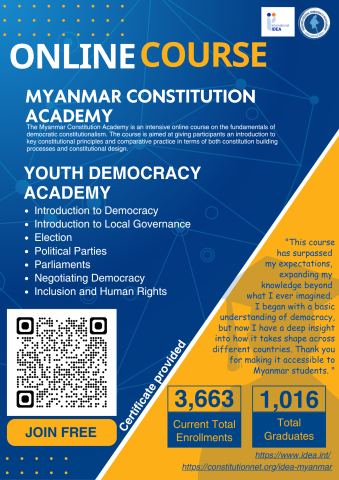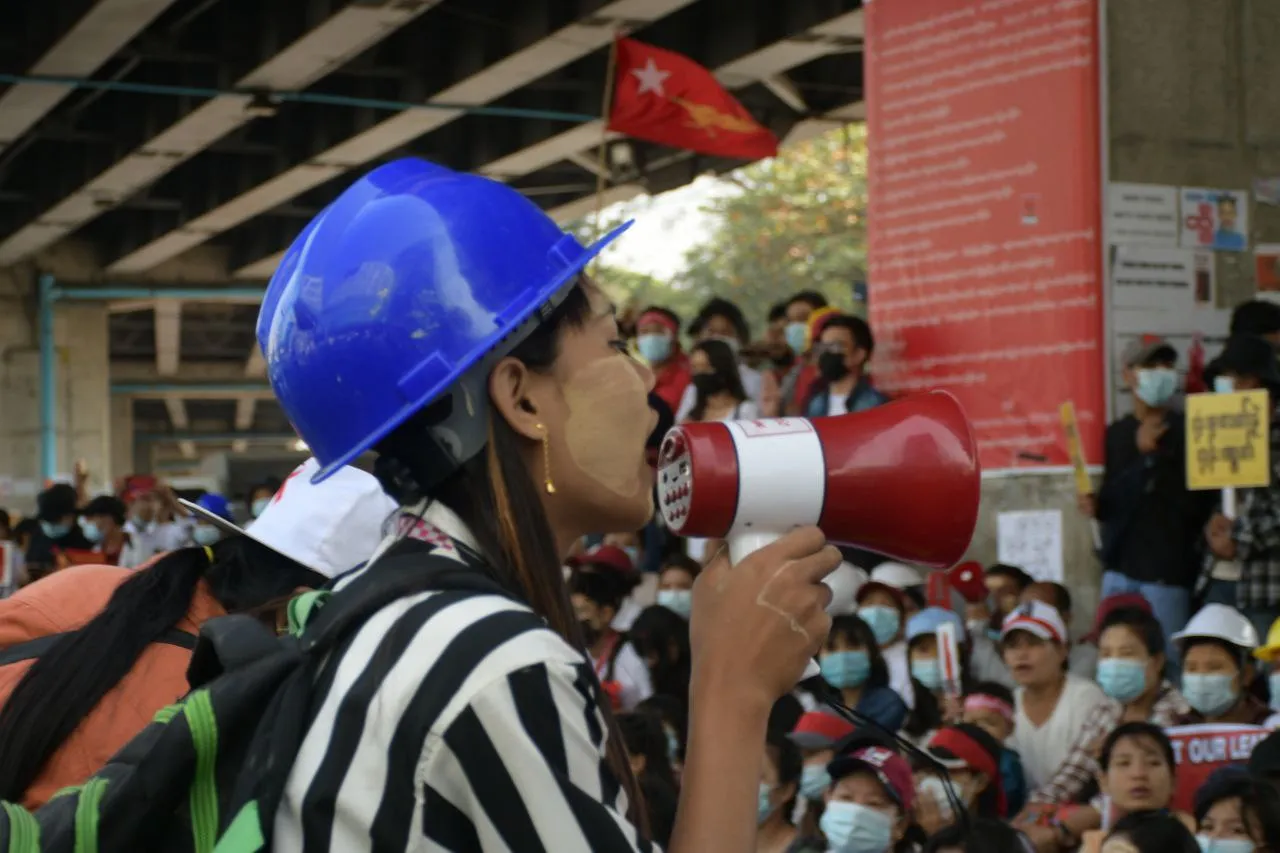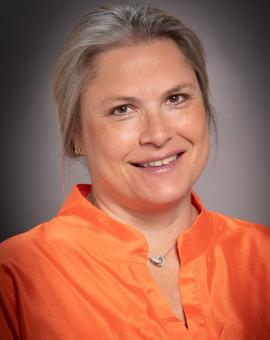
From protest to purpose: How Myanmar’s youth are shaping a democratic future

Youth aged 15–35 make up 33 per cent of Myanmar’s population of 60 million, with a national median age of 27. Despite their demographic significance, youth under 35 won only 8 per cent of seats in the 2020 elections. This underrepresentation contrasts sharply with the central role they play in Myanmar’s political and civic life.
From 2010 to 2020, Myanmar youth saw a glimpse of freedom and opportunity. However, the 2021 coup prompted a new wave of youth-led resistance and civic engagement. For many young people, the 2021 coup was not just a political event; it resonated in a deeply personal way, erasing the glimpse of democracy they had experienced and snatching away their hopes for more opportunities and freedom.
Youth were among the first to revolt against the 2021 coup leaders, calling for the restoration of democracy. They flooded the streets in peaceful protests, expressing their resistance through marches, music, performance art, and digital campaigns. Their peaceful efforts were met with a brutal crackdown by the military junta.
In urban areas under military control, young people continue to face daily threats—from arbitrary arrests, torture, and extrajudicial killings to being hunted for simply joining flash protests or posting anti-regime messages online. The regime has also imposed widespread internet blackouts and blocked access to major platforms like Facebook, aiming to silence youth voices and isolate them from the outside world. Left with no other option, many young people have made the difficult and painful choice to join the armed resistance—as an act of last resort in the face of military junta violence.
The enactment of the junta’s 2024 conscription law caused more hardship for Myanmar’s youth, with 60,000 young people forcibly recruited and sent to the frontlines to date, often used as human shields. In 2025, the junta started to compile lists of young women to conscript. The junta’s conscription drive has forced almost a hundred thousand young people to flee their homes in fear. Many have escaped to neighbouring countries, where they often live illegally, facing constant insecurity and the risk of arrest. For those who remain inside the country, daily life is full of anxiety. Fear of surveillance, sudden arrest, or military raids does not allow them to focus on work, study, or live peacefully.
Four years after the coup, Myanmar’s youth have taken on critical roles in the anti-junta movement as frontline fighters, community medics, volunteer educators, humanitarian workers, organizers, and digital activists. Young people across the country continue to organise within the civil disobedience movement (CDM) by supporting underground civic education systems, creating anti-junta media and art, providing emergency relief in displaced communities, leading cybersecurity and online defense campaigns, and forming youth-led political coalitions. In every space where the junta tries to silence or control them, youth are pushing back using their skills, their networks, and their courage to reclaim a democratic future they believe in.
The 2021 coup has served to strengthen the political awakening of Myanmar’s youth. Faced with the sudden loss and violation of their rights and their hope for a democratic future, Myanmar youth began to ask questions: Why did this happen? How can we prevent it from happening again? What kind of country do we want to build? As a result, young people across the country have become passionate learners and advocates for democracy, federalism, and civilian governance. They are no longer just fighting for freedom—they are learning what it means to defend, protect and sustain it in a democratic system. Their vision for the future is clear: a genuine democracy where rights are guaranteed, freedom is real, and the military can never again take power away from the people.
"Democracy is costlier than you think. Democracy is priceless. The case of Myanmar attests that once your freedom is lost, so many people must risk their life, sacrifice their freedom, future, their jobs and even their loved ones. Democracy is always to be protected, preserved continuously. Protect your democracy, never take it for granted." (A Myanmar Youth)
To support this growing political awareness, International IDEA’s Myanmar Programme has actively supported youth engagement through online and in-person learning platforms since 2021. Two flagship training initiatives—the Myanmar Constitution Academy and the Youth Democracy Academy—have become important resources for youth to deepen their understanding of democracy, federalism, and political systems.
Since 2022, over 3,000 learners have signed up on the platform, and more than 1,000 have successfully completed at least one course. The courses cover a broad range of topics, including constitutions, democracy, federalism, elections, parliaments, political parties, local governance, inclusion, human rights, and negotiation tools.
In April, International IDEA organised an in-person Youth Democracy Academy training for Kachin ethnic youth leaders. The training covered key topics such as constitution-building, federalism, local governance, human rights, inclusion, and negotiation. After the course, participants reported increased confidence to engage in political discussions with plans to apply their knowledge in their communities, workplaces, and personal lives—sharing knowledge, raising awareness, and advocating for democratic change.

“I will apply the knowledge from this online course to the workplace. Since politics is for everyone, not just men, we will organize and involve women in sharing this knowledge and helping to build a new nation.” (A learner of Youth Democracy Academy)
Through its Democracy Detective Game, International IDEA, in partnership with Digital Public Square, provides a gamified platform of the Youth Democracy Academy for anyone in Myanmar to learn about democracy.
International IDEA remains committed to supporting Myanmar’s youth in their efforts to build a genuine democracy by providing civic education to enable learning, amplify their voices, and walk with them toward the democratic country they are determined to build.




